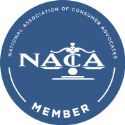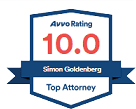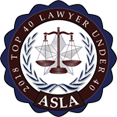Federal Student Loan Consolidation
New York Debt Consolidation Lawyers
If you have federal student loans that are not in default status, you may be eligible to apply for a loan consolidation under the William D. Ford Direct Consolidation program. However, before you decide to consolidate, you should understand the advantages and disadvantages. For example, if you have eligible federal loans with multiple servicers, you may be able to consolidate all the accounts under one servicer, thus making it easier to track and manage the accounts. Disadvantages may include limitations on the type of payment plans that are available to you after the consolidation, and possibly the loss of some student loan forgiveness options. Each person's situation is unique, and therefore requires individual analysis to make a determination as to how a federal student loan debt consolidation could effect you.
Our experienced lawyers can help you understand the status of your loans with the and the options that may be available for student loan resolution. We help people resolve their student loans through debt consolidation, rehabilitation, settlement, discharge/forgiveness, and student loan lawsuit defense. If you are struggling with managing your student loan debt and you live in New York, call us for a free evaluation.
Frequently Asked Questions About Federal Student Loan Debt Consolidation
SHOULD I CONSOLIDATE MY LOAN DEBTS?
Many people consider loan consolidation the best option because it makes the repayment process practical and easy. After you pursue loan consolidation, all of your loans are combined into one bill and your monthly payments are lowered since you are given up to 30 years to repay the total loan amount. Alternative repayment plans and obtaining a fixed interest rate are also two possible features that you may acquire along the way.
However, loan consolidation also has its cons. You must first compare your present monthly payments to the potential monthly payments you will be required to make if you choose to consolidate your loans. For instance, if you extend your repayment period, you will essentially be required to make more payments and pay more in interest.
Also, if you choose to consolidate your loans, you may lose the borrower benefits associated with original loans. These benefits include interest rate discounts, principal rebates, and more, which may potentially lessen the cost of repayment.
After you’ve agreed to a Direct Consolidation Loan, your loans cannot be removed. The combined loans must be paid off and once that has occurred, the loans are forever eliminated. Overall, it is up to you to determine whether this process will help relieve the stress associated with paying off your loans.
WHEN CAN I CONSOLIDATE MY LOAN DEBTS?
Eligibility for loan consolidation can be sought once you have graduated, left school, or have dropped below half-time enrollment.
ARE THERE DIFFERENT REPAYMENT PLANS?
Just as each person has his own distinctive personality, each person also has his own distinctive needs. It is for this very reason that there are a variety of repayment plans made available, which are designated to help with your specific needs.
Contact our law firm to learn how we can assist you in determining the available repayment options and then help you identify the repayment plan best suited to deal with your personal circumstance.
WHAT IS THE INTEREST RATE ON A CONSOLIDATION LOAN?
Once you consolidate your loans, you automatically acquire a fixed interest rate. The rate is calculated by using the weighted average of the interest rates on the loans that one is consolidating.
WHEN DO I BEGIN REPAYMENT?
The repayment of the Direct Consolidation Loan will usually start within 60 days of when the loan was issued.since the loan has been given. The consolidated amount determines the time span you are designated to repay the full sum; however, in most cases, the time span given stretches from about 10 to 30 years. Other factors that may influence the prescribed term are your other education loan(s) and the repayment plan you choose.
How can a Debt Consolidation Lawyer in New York Help?
The lawyers at the Law Office of Simon Goldenberg PLLC can help you understand if your loans are eligible for a debt consolidation and we will advise you as to whether it is the best resolution option available to you. There can be some disadvantages to consolidation, and there is no turning back once the process is completed. As such, proceeding with the guidance of an experienced student loan debt consolidation lawyer in New York, you can be at ease knowing that you have professionals looking out for your best interest, leaving no stone unturned in seeking a resolution on your behalf.
We are a private debt relief law firm and are not associated with the Department of Education or any governmental entity. Our lawyers help people in New York find solutions to their student loan debts, including debt consolidation. Any holder of a federal loan may seek to resolve their loans without hiring an attorney. The information on this page is not legal advice and as such should not be relied upon. We do not guarantee it's accuracy, and the validity of the information might change over time. Speak to an attorney for advice regarding your matter, or for more information, visit the official Student Aid Website at studentaid.ed.gov.











